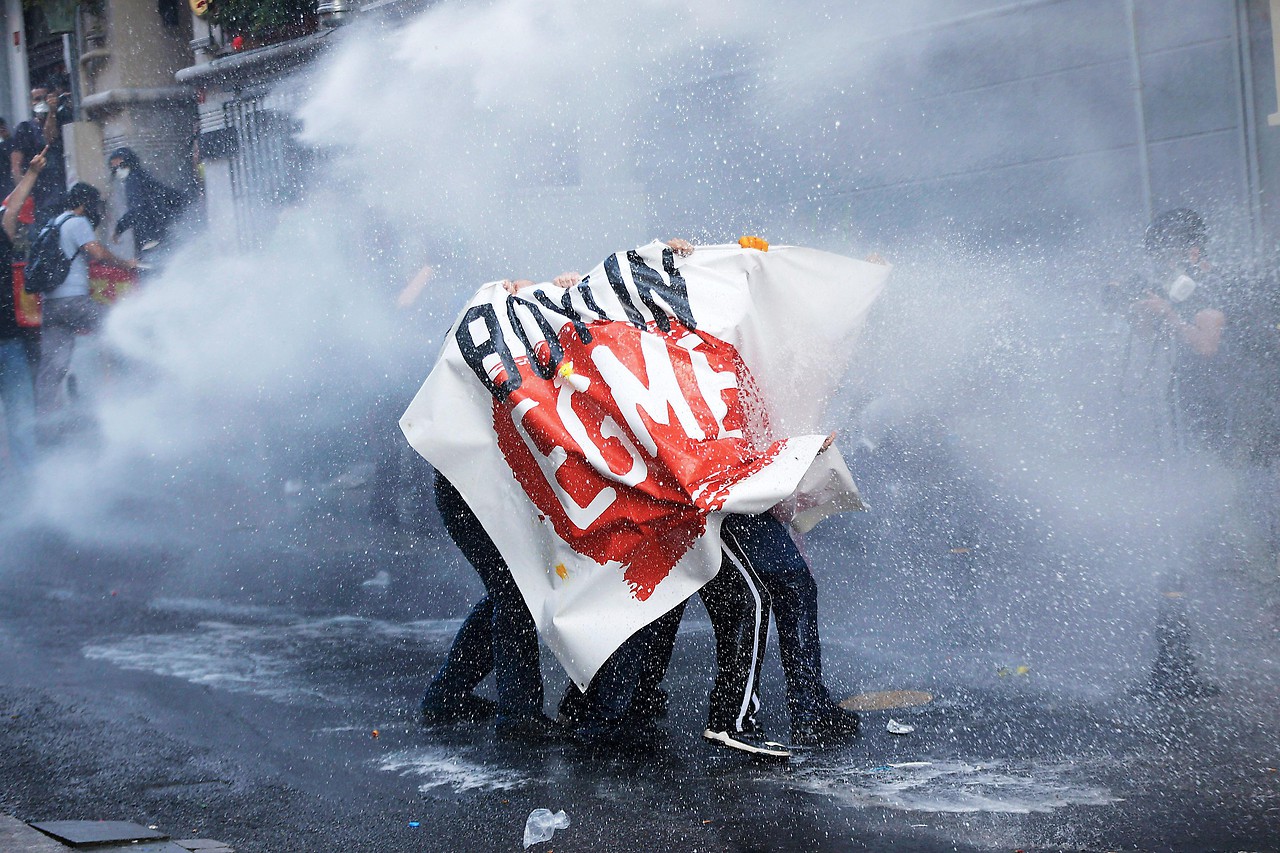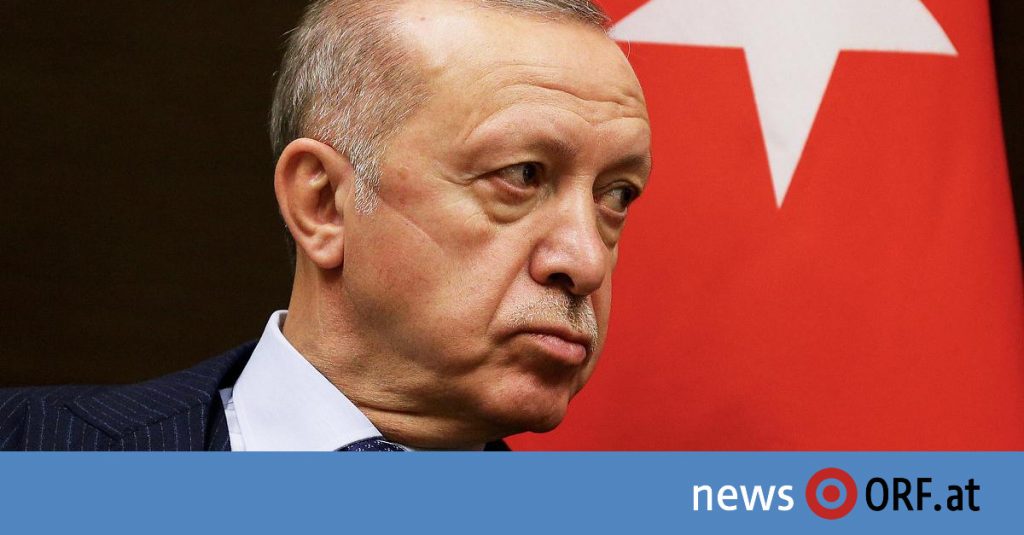Erdogan said he had instructed the Foreign Ministry to declare the diplomats a “persona non grata” “as soon as possible.” In international diplomacy, this classification usually follows expulsion. The ambassadors of the USA, Germany, France, Canada, Denmark, the Netherlands, Norway, Sweden, Finland and New Zealand are affected.
Erdogan did not mention a deadline: “You have to get to know Turkey and learn to understand it.” The Turkish head of state accused the ambassadors of “obscenity”. “You have to get out of here if you don’t understand Turkey.”
The European Court of Human Rights has been calling for their release since 2019
At the beginning of the week, these foreign representatives called for the release of cultural promoter Kavala, who had been held without conviction for four years, in a joint appeal – in reference to the rulings of the European Court of Human Rights (ECHR). The European Court of Human Rights had already requested Kavala’s release in 2019.

Turkey has so far ignored this ruling, although being a member of the Council of Europe, it would in fact be obligated to implement it. The Council of Europe recently warned that action will be taken against Ankara if Kavala is not released before the organization’s next meeting on November 30.
An appeal to Ankara is ‘unacceptable’
Austria was not with the signatory nations, but then showed solidarity with them. “Austria, of course, would have supported the declaration,” the foreign ministry told Press (Wednesday’s edition). Austria regularly calls for Kavala’s immediate release. But apparently, Austria’s ambassador to Ankara Johannes Wimmer, like many of his colleagues, was not asked if he would take part, the newspaper reported.
On Saturday, the Austrian Foreign Ministry said, via Twitter, that it deeply regrets Turkey’s declaration: “The judgments of the European Court of Human Rights must be implemented.”
Ankara described the joint appeal as “unacceptable”. Erdogan had already indirectly threatened those diplomats with expulsion on Thursday: “We cannot have the luxury of welcoming them into our country.” Germany and the United States simply did not allow the “fraudsters, murderers and terrorists” to be released.
If convicted, they face life imprisonment
Kavala was originally arrested for financing and organizing the anti-government Gezi protests in Istanbul in 2013. He was acquitted in February 2020 and released shortly after after two and a half years in prison.

However, he was arrested again a few hours later – this time in connection with the attempted coup against Erdogan in 2016 and allegations of espionage. Additionally, earlier this year, an appeals court overturned the acquittal over Gezi’s protests. If found guilty of espionage, Kavala faces life in prison.
Born in Paris, Kavala runs one of the largest publishing houses in Turkey and, together with his organization Anadolu Kültür, advocates dialogue between ethnic groups, for example in the Kurdish conflict or with the Armenians. He was also one of the founders of the Turkish branch of the Open Society Foundation for American investor and investor George Soros.
‘Fair process is no longer possible’
His next trial is scheduled for November 26. However, on Friday, Kavala announced through his attorney that he would no longer participate in court hearings: “The derogatory and defamatory statements made by the President against an unconvicted person whose trial continues to violate human dignity.”
Jezzy Protest
Protests against the planned development of a small park near Istanbul’s Taksim Square in 2013 became a serious challenge to Erdogan’s authority.
Erdogan had previously dubbed the patron of the culture the “Royalty of Soros”. Kavala: I think that under these circumstances a fair trial is no longer possible and there is no point in participating in future negotiations. He described the Council of Europe as his greatest hope for his release.
“If I begin the process of transgression and the harm it causes is greater than the expected political benefit from continuing my imprisonment, I may be released.” The activist suspects that Erdogan was using his prison for political purposes. In a written interview with AFP, he said the real reason for this was “the government’s need to keep alive the illusion that the Gezi protests were the result of a foreign conspiracy.”
Berlin “takes note” of the statements
Politicians from the Free Democratic Party, Christian Democratic Union and the Green Party criticized the Turkish government’s actions. FDP foreign politician Alexander Graf Lamsdorf said a possible expulsion of ambassadors would be “unwise, undiplomatic and would weaken the cohesion of the alliance (note: NATO)”. Vice-President of the Bundestag Claudia Roth (the Green Party) called for sanctions: “Erdogan’s unscrupulous actions against his critics are increasingly being denied.”
The German Foreign Ministry said Saturday evening: “We have taken note of the statements made by Turkish President Erdogan and the reports related to them, and we are currently conducting intensive consultations with the other nine countries concerned.”

“Food practitioner. Bacon guru. Infuriatingly humble zombie enthusiast. Total student.”








More Stories
Kyiv: Russian Kursk offensive halted
US Presidential Election: Former US Government Officials Warn Against Donald Trump's Election
Netherlands wants to leave asylum system